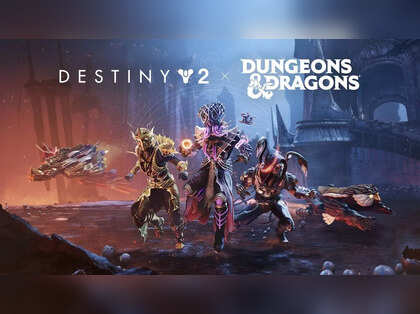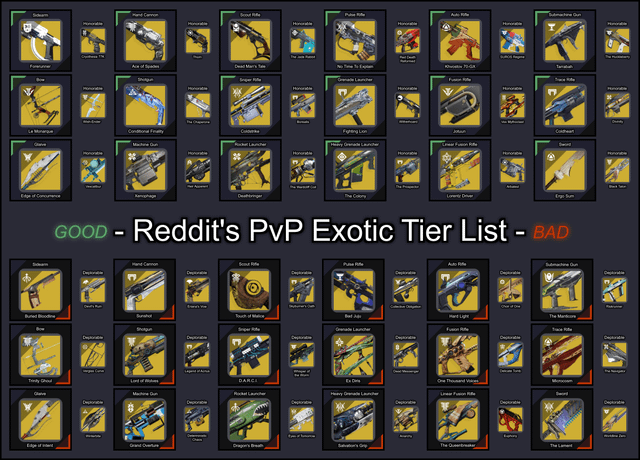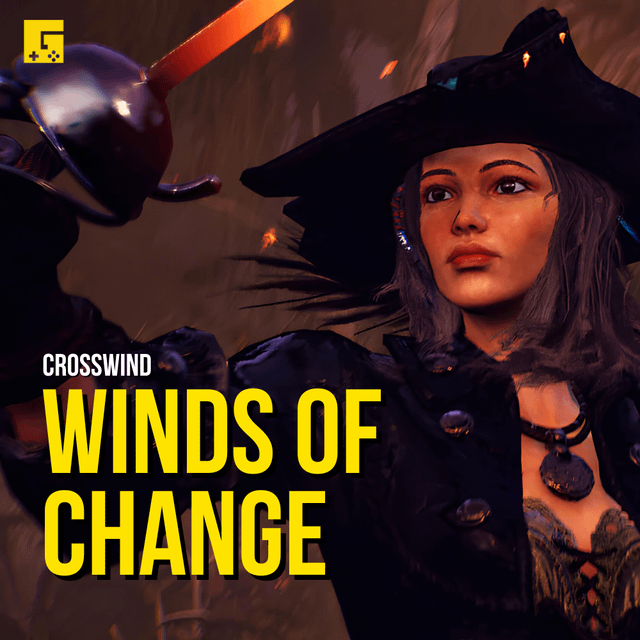The Final Shape's Final Price?

The dust hasn't settled from the Traveler's arrival, but a different kind of storm is brewing in the Destiny 2 community. The subject? The price tag attached to The Final Shape’s Deluxe Edition, specifically the perceived value of the dungeons included within. As a former MMO developer with over a decade in the trenches, I've seen this narrative play out before. Let’s dive into the heart of the issue, dissect the arguments from both sides, and explore the broader implications for live service games, especially within the PC ecosystem.
Nostalgia is a powerful force. This image of a Guardian in a Forsaken-esque setting evokes the positive feelings players have towards past Destiny 2 content, setting the stage for a comparison with current pricing concerns.
The Crucible of Community Opinion: A Question of Value
The core of the controversy is simple: PC gamers, known for their discerning tastes and value-conscious mindset, are questioning whether the Deluxe Edition's asking price accurately reflects the content offered, particularly the included dungeons. The Deluxe Edition grants access to The Final Shape expansion, the annual pass (seasons), an exotic weapon, and crucially, two dungeons. It's this dungeon component that's drawing the most fire.
Players argue that the cost is too high for what essentially amounts to two additional pieces of content. Concerns range from the potential length and replayability of the dungeons to the feeling that they are being forced to pay extra for content that should be included in the base expansion or made available through more granular purchasing options. This sentiment is amplified by Destiny 2's existing monetization structure, which already includes seasonal passes and a la carte content purchases.
 This composite image represents the core issue: the disconnect between the marketed value of The Final Shape Deluxe Edition and the negative community sentiment surrounding its pricing.
This composite image represents the core issue: the disconnect between the marketed value of The Final Shape Deluxe Edition and the negative community sentiment surrounding its pricing.
Bungie's Perspective: Sustaining the Live Service Engine
Let's try to see things from Bungie's side. Building and maintaining a live service game like Destiny 2 is a massive undertaking. It requires a constant influx of resources to fund development teams, server infrastructure, community management, and ongoing content creation. Monetization is the lifeblood that keeps this engine running.
Bungie likely views the Deluxe Edition as a way to provide a premium experience for dedicated players while ensuring a steady revenue stream to support the game's continued development. The dungeons, in their eyes, are not just afterthoughts but meticulously crafted experiences that require significant investment. The higher price point, they might argue, reflects the quality and depth of these experiences, along with the seasonal content and other bonuses.
Furthermore, the Deluxe Edition could be framed as offering a "discount" compared to purchasing each season and dungeon separately. It’s a package deal designed to incentivize long-term engagement and reward players who are committed to the Destiny 2 ecosystem. Whether that perceived discount is truly valuable is, of course, in the eye of the beholder.
 This image represents the in-game economy and the various ways players engage with it, highlighting the context of monetization and content acquisition.
This image represents the in-game economy and the various ways players engage with it, highlighting the context of monetization and content acquisition.
The PC Gamer's Dilemma: Value vs. Cost
PC gamers are a savvy bunch. They’re accustomed to a wide range of pricing models, from free-to-play to subscription-based to one-time purchases with optional microtransactions. They’re also incredibly vocal when they feel they aren’t getting their money's worth.
The negative reaction to The Final Shape Deluxe Edition pricing stems from a perceived imbalance between cost and value. Players are questioning whether two dungeons, however well-designed, justify the significant price jump compared to the base expansion. They may also feel that the seasonal content included in the Deluxe Edition doesn't offer enough compelling reasons to upgrade, especially if they are already invested in the game and have experienced previous seasons.
This boils down to a fundamental issue: trust. Players need to feel that their investment in Destiny 2 is being respected and that Bungie is offering a fair deal. When pricing feels arbitrary or exploitative, it erodes that trust and can lead to decreased engagement and negative word-of-mouth.
 This visual juxtaposition highlights the disconnect between the perceived value offered by the Deluxe Edition and the frustration experienced by some players.
This visual juxtaposition highlights the disconnect between the perceived value offered by the Deluxe Edition and the frustration experienced by some players.
A Comparison of Monetization Models: FFXIV, Guild Wars 2, and Destiny 2
To understand the Destiny 2 situation better, let's compare it to other popular PC MMOs:
- Final Fantasy XIV: This game utilizes a monthly subscription model, supplemented by optional cosmetic purchases. Players pay a recurring fee for access to the game and all its content, with expansions included. This model provides a predictable cost and ensures a constant revenue stream for the developers.
- Guild Wars 2: Guild Wars 2 uses a buy-to-play model with expansion packs and a gem store for cosmetic items and convenience services. The base game is often available at a reduced price, making it accessible to new players. Expansions offer significant content updates and are purchased separately.
- Destiny 2: Destiny 2 employs a hybrid model with expansions, seasonal passes, and a la carte content purchases. This system offers flexibility but can also feel fragmented and expensive, especially for players who want access to all content.
The key difference lies in the perceived value proposition. FFXIV's subscription model provides access to a vast amount of content for a fixed monthly fee. Guild Wars 2's buy-to-play model allows players to experience the core game without ongoing costs, with expansions offering substantial content drops. Destiny 2’s model, while offering flexibility, can feel like a constant drip-feed of costs, with players having to navigate a complex web of purchases to access all content. The Destiny 2 Final Shape Deluxe Price is therefore a key point of contention.
 This chart visually breaks down the different monetization models of popular MMOs, allowing readers to compare and contrast the value proposition of each.
This chart visually breaks down the different monetization models of popular MMOs, allowing readers to compare and contrast the value proposition of each.
The Long-Term Consequences: Trust and Engagement
The Destiny 2 Final Shape Deluxe Edition Controversy highlights a critical issue in live service games: the delicate balance between monetization and player trust. When players feel that they are being nickel-and-dimed, or that the value proposition is unfair, it can have serious long-term consequences. These include:
- Decreased Engagement: Players may become less invested in the game and less likely to participate in its community.
- Negative Word-of-Mouth: Disgruntled players may discourage others from playing the game, impacting new player acquisition.
- Erosion of Trust: A damaged reputation can be difficult to repair, making it harder for developers to regain player confidence.
 This image represents the uncertainty surrounding the future of Destiny 2 and the potential impact of the pricing controversy on the game's player base.
This image represents the uncertainty surrounding the future of Destiny 2 and the potential impact of the pricing controversy on the game's player base.
Potential Solutions and Moving Forward
So, what can Bungie do to address these concerns? Here are a few suggestions:
- Increase Transparency: Clearly communicate the value proposition of the Deluxe Edition, highlighting the content included and the benefits of purchasing it. Break down the individual costs of each item and show the overall savings.
- Offer More Granular Purchasing Options: Allow players to purchase dungeons separately, giving them more control over their spending. Consider a "Dungeon Pass" that provides access to all dungeons released within a specific timeframe.
- Focus on Content Quality: Ensure that the dungeons are high-quality and offer significant replayability. Invest in engaging story content, challenging encounters, and meaningful rewards.
- Engage with the Community: Listen to player feedback and address their concerns directly. Participate in community discussions and be transparent about the development process.
Ultimately, the success of The Final Shape and the long-term health of Destiny 2 depend on Bungie's ability to build and maintain trust with its player base. By offering fair pricing, high-quality content, and transparent communication, Bungie can ensure that players feel valued and invested in the game for years to come.
 This graph provides a visual representation of how player sentiment can fluctuate based on content releases and controversies, emphasizing the impact of pricing on player perception.
This graph provides a visual representation of how player sentiment can fluctuate based on content releases and controversies, emphasizing the impact of pricing on player perception.
Conclusion: The Shape of Things to Come
The Destiny 2: The Final Shape Deluxe Edition pricing controversy is more than just a debate about dollars and cents. It’s a reflection of the complex relationship between players and developers in the live service gaming landscape. By understanding the concerns of the PC gaming community, embracing transparency, and offering fair value, Bungie can navigate this challenge and ensure a bright future for Destiny 2. The conversation surrounding the Final Shape Dungeons Value needs to be productive and collaborative to benefit both the developer and the players. Only then can we truly appreciate Destiny 2 Final Shape Content Value.
 This image symbolizes a hopeful future for Destiny 2, contingent on addressing player concerns and fostering a sense of unity between the community and the developers.
This image symbolizes a hopeful future for Destiny 2, contingent on addressing player concerns and fostering a sense of unity between the community and the developers.
 This call to action encourages reader engagement and fosters a sense of community discussion around the topic.
This call to action encourages reader engagement and fosters a sense of community discussion around the topic.